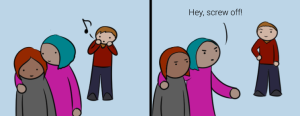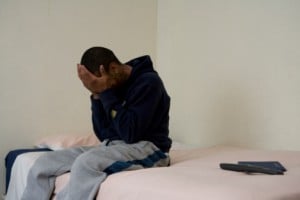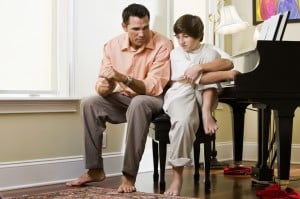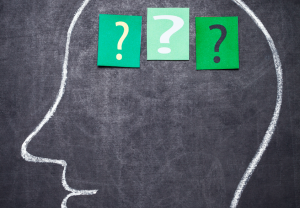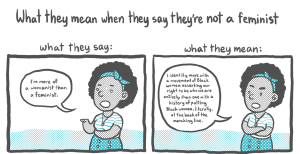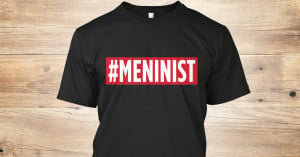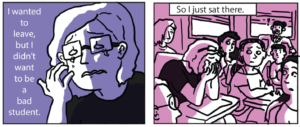Originally published at The Establishment and republished here with their permission.
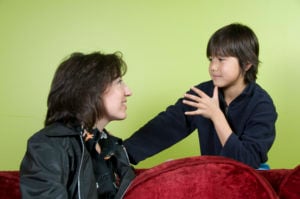
A young person signing the word “Mom” to an adult sitting on a red couch.
When my mother was in labor with me, she went to the emergency room, as one does.
By coincidence, it was also the day of my sister’s birthday – we were to be born exactly seven years apart. The nurse, upon learning this, refused to admit my mother; she insisted that my mother was faking being in labor.
Her rationale was that my mother, a working class Asian immigrant, wanted my sister and me to be born on the same day, because she was too cheap to buy two birthday cakes.
I consider this experience to be the first lesson that life has ever thrown at me. I try to envision how an upper-middle class white woman in the same situation, visibly pregnant and clearly in pain, would be similarly rejected from a maternity ward, and I fall short.
This experience, coupled with the myriad other ways I witnessed my parents suffer racial oppression growing up, taught me that your appearance and means of interacting with the world would inevitably affect the way other people would treat you.
I further learned that this treatment would persist no matter how educated, wealthy, intelligent, persistent, or successful you were. My family was fortunate to enjoy upwards mobility class-wise, but my father would recount stories of being racially ostracized over many years at the company where he worked as an engineer.
It is for these reasons that I don’t believe white people when they tell me that my disability is something to be “overcome.”
As a person of color growing up in North America, you learn a lot about the experiences and values of white people. Our culture gives overwhelming attention and weight to white perspectives, to the point that they typically dominate as the only perspectives we are exposed to in media and in our social spheres.
This ubiquity, combined with the propensity of white people to overgeneralize their experiences, means it can be easy to believe that these perspectives are universal truths.
And one of the perspectives that we internalize is a particular idea of how “good” minorities behave. Because we’re taught no other alternatives by white culture, certain behavioral patterns are imposed on us by the expectations that white people set for us: We must be polite, unassuming, and unconcerned with race.
The same thing happens with disability.
When we look at the way disability is represented in media, it becomes apparent that white culture has a specific ideal of how a “good” disabled person behaves.
A “good” disabled person allows their success to be measured in relationship to able-bodied people: how well they can “prove themselves” by defying assumptions, and how “inspirational” they can be by transcending disability.
Rather than being seen as part of the natural human drive to challenge ourselves, disabled people are understood to climb mountains or conduct challenging intellectual work or produce art only to contradict able-bodied people’s misconceptions.
A “good” disabled person is productive and a source of labor. We applaud corporations that hire disabled people, even when these corporations do so in dangerously exploitative ways.
A “good” disabled person is independent, and compensates for their disability using technological means, adaptations, or persistence, rather than the support of other human beings.
But most importantly, a “good” disabled person is apolitical, and will not talk about their challenges except as a hurdle to be overcome. To contextualize our experiences as systematic social oppression is unacceptable.
These were the perspectives that I was exposed to as a child. When my parents learned through screening in kindergarten that I was hard of hearing, they scrambled to find resources. What they found were parenting groups, mostly full of parents who were white and affluent.
We didn’t recognize the effect of this skew until much later in life, when we became slowly aware that the strategies and advice imposed upon us had much greater consequences when enacted by people of color.
For example, my parents were told that as a deaf child, I could only learn one language, as a means of dissuading them from teaching me sign language. They took this advice to heart, and did not teach me Chinese.
Thanks to this myth, I lost access to my parents’ culture. To this day, this is one of my mother’s greatest regrets, as I cannot communicate with my grandparents in any effective manner.
Today, we know this advice is ill-founded from a linguistic and child development standpoint. Children can learn ASL and other languages, and baby sign language classes actually accelerate the pace of spoken language acquisition in hearing babies.
However, this myth was and continues to be pushed because it serves as a proxy for forcing acceptable presentation in deaf people. Someone who uses sign language is marked as visibly disabled and falsely perceived to be dependent upon other people through the use of interpreters.
As immigrants, my parents were unknowingly thrown into a culture war they did not have the context for.
Growing up, I was forced to figure out how to navigate these lines of acceptability in disability. I saw many parallels with the way my parents were forced to navigate similar lines of acceptability as racial minorities and immigrants.
The looks of offense and pity I would receive while walking down the street with hearing aids echoed the calls of “go back to your own country” my parents would receive.
The bullying I received from my schoolmates echoed the gossip that was being tossed around behind my father’s back at the water cooler. The mockery I would get for my deaf accent echoed the laughter at my parents’ halting English.
We were promised that these experiences would go away, if we were successful, educated, compliant, quiet, and accepting of the status quo – assimilated.
But as time progressed, and as that promise never bore fruit, I became increasingly disillusioned.
I remember the first time my mother openly acknowledged the impact of race on us. It was a silly argument – I don’t even remember what it was about. But it became heated, and it escalated, until my mother finally snapped. She pointed to the skin on her arm. “Look. Our skin is yellow.”
I was stunned into silence. I felt the world shift beneath me. Before that, we had never truly talked about race in our household. We knew that we were being treated unfairly, but no one had ever put a name to it. Instead, the solution was just to push our feelings down, and to work harder and persist further.
But in that moment, the façade broke. It was not us. These were forces of oppression beyond our control.
Step by step, I drifted away from the model minority myth. In many ways, it was much more comforting to believe that I had control over the discrimination that I experienced. It felt like I had agency.
But the just world fallacy that this mentality demands is dangerous.
If you tie your treatment as a minority to your ability to excel and defy stereotypes, each time you experience discrimination, it becomes your failure to shoulder.
You constantly look for aspects of yourself to justify the abuse, excising portions of yourself. It starts with the way you talk. You spend countless hours on speech therapy sessions because people think you sound weird. You stop wearing glasses – you look too much like the Asian nerd stereotype. You dismiss your aspirations as a writer, your passion for history; neither is profitable enough to make you qualify as successful.
It cuts away from you, piece by piece by piece, until you finally fit into the mold of respectability. Then, you start applying these expectations to others.
You lose your empathy. When you meet someone who should share your experiences, you instead hold them in contempt for not having done enough to raise their lot in life.
I didn’t want to live like that.
In search of an alternative, I came to realize that for me, rejecting the model minority myth necessarily meant embracing disability as a social and political identity.
My parents have had a similar journey. Over many years, I’ve seen them enact a wide range of strategies in dealing with racial oppression, including accepting the “model minority” myth. But what I’m proudest of are the times my mother takes a stand against racial injustice – including the stand she took when I was born.
When my mother told me about being nine months pregnant and in labor, shaming the nurse until she was finally admitted, she taught me that sometimes, you have to be loud. Not just for your own sake, but because the things that happen to us are not just happening to us.
We must name our experiences as connected to the larger systems of power that generate them. Otherwise, we are forever addressing individual symptoms without ever getting to the root causes.
Later, when she launched a human rights case against the company that dismissed her when she needed to take time off to take me to the hospital as a toddler, she taught me to wear every part of yourself with pride, and to fight against those who call you lesser for being human.
The central premise of the white cultural ideal of disability is that disability is inherently negative, and must be considered outside of one’s identity and corrected for. I reject that idea. My disability was and continues to be a formative influence on me that cannot be neatly detached from who I am today.
Today, my mother works to support new immigrants so they don’t have to experience the same mistreatment she went through. Her decisions to find and contribute to community parallel mine; I currently involve myself in the Deaf community, and volunteer for various queer non-profits on accessibility issues.
To me, I see this as us arriving at similar conclusions through similar experiences.
We found that oppression is larger than any one individual. When we try to deal with oppression individually through trial and error, we inevitably make mistakes, developing maladaptive strategies and trauma.
But we also get some things right. By coming together, and pooling what we know, we can limit the damage.
The “model minority” framework never worked for me –not as a person of color, not as a disabled person. Instead, I will be loud. I will be political. I will define my own metrics of success. If that makes me unrespectable to white people, so be it.
More from The Establishment:
- When I Said All Trump Supporters Are White Supremacists, I Meant It
- Inside Stanford’s New Victim Blaming Alcohol Policy
- My Friends Would Rather Have Their Guts Cut Open Than Be Like Me
[do_widget id=’text-101′]
Alex Lu is currently a graduate student at the University of Toronto, pioneering through his program as the first Deaf student in the history of the Computer Science department. When not sciencing, he works as a radical accessibility advocate in the community. He currently sits on the board of OPIRG-Toronto, and serves as an advisor to the Ontario Rainbow Alliance of the Deaf.
Search our 3000+ articles!
Read our articles about:
Our online racial justice training
Used by hundreds of universities, non-profits, and businesses.
Click to learn more
Most Read Articles
- « Previous
- 1
- …
- 30
- 31
- 32






